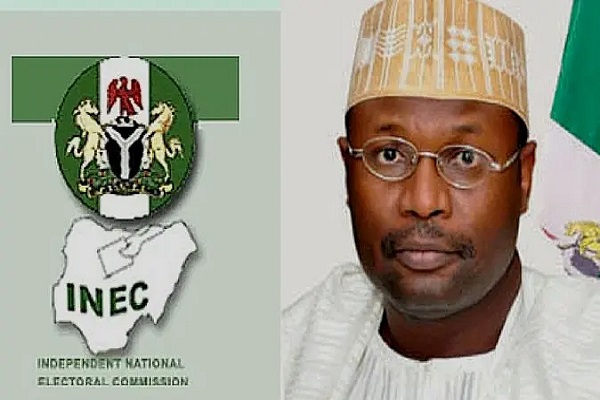
Independent National Electoral Commission
Months after attributing the slow upload of the 2023 presidential election results on its election viewing portal (IRev) to an attempted hack, the Independent National Electoral Commission (INEC) has revealed that an unforeseen configuration issue in integrating the presidential election upload into the system was the actual cause.
INEC, in a comprehensive 526-page report on the conduct of the 2023 general elections, also cited currency swap issues and fuel scarcity during that period as additional factors negatively impacting the elections.
The commission further explained that although the initial configuration problems were promptly addressed, subsequent delays occurred due to Polling Officers either turning off their devices or leaving their locations, resulting in communication difficulties with their IREV.
This led to a backlog of several scanned results awaiting upload, contributing to system slowness and necessitating some uploads to be postponed until the following day.
INEC reported over 50 attacks on its buildings and facilities across 15 states, resulting in losses including vehicles, office equipment, and election materials. The commission emphasized the diversity of representation in the 2023 general election, noting that multiple political parties secured victories in state assemblies and the National Assembly.
Among them, the APC, PDP, LP, and NNPP emerged victorious in gubernatorial elections.
The Report, featuring a foreword by Commission Chairman Prof. Mahmood Yakubu, stated: “On February 25, 2023, the nation conducted the Presidential and National Assembly Elections.
These elections were distinguished by their peaceful and orderly conduct, characterized by minimal instances of violence, with over 25% of registered voters participating.”
“Polls commenced punctually in most polling stations and proceeded smoothly and efficiently.
While some technical glitches with the BVAS were reported, these were promptly addressed by the dedicated technical staff assigned to handle such issues.
The process of counting, collating, and declaring results was predominantly peaceful, transparent, and credible nationwide.
“While the former was designed to function as the central hub for monitoring election activities across the 774 LGAs nationwide, the latter operated as the venue for the National Collation of results from the States.
Throughout the electoral process, Election Monitoring Support Centres (EMSCs) in each state played a crucial role as a primary source of field information and intervention.
“For the Governorship and State Houses of Assembly Elections held on March 18, 2023, the National Situation Room was established.
This time, it was replicated in all 36 states. The Situation Rooms, both at the national and state levels, were staffed by a team of experts from INEC, security agencies, and other relevant organizations.”
A significant challenge that impacted public perception of the election and sparked widespread commentary was the delay in uploading Polling Unit results for the presidential election onto the INEC Result Viewing (IReV) portal in real-time at the close of polls on Saturday, February 25, 2023.
It’s noteworthy that the IReV portal stands as one of the most notable innovations introduced by the Commission ahead of the 2023 General Election to enhance the integrity and transparency of the electoral process.
Serving as a public-facing platform, the IReV portal displays images of the original Polling Unit result sheets as documented in Form EC8A.
The operational procedure and rationale behind the upload of results to the IReV for public viewing are straightforward.
Following the conclusion of polls, Polling Unit results (Form EC8As) are scanned and uploaded to the IReV by the Presiding Officer(s).
Subsequently, these results become accessible for public viewing and scrutiny by all stakeholders.
The system, initially deployed during the Nasarawa Central State Constituency bye-election in August 2020 and subsequently tested in 105 other elections, including three off-cycle governorship elections, has significantly bolstered public confidence in the integrity and transparency of the Commission’s result management process.
The challenge encountered with uploading the Polling Unit (PU) presidential election results onto the IReV after the presidential and National Assembly elections on February 25, 2023, was unprecedented.
As voting concluded nationwide and Presiding Officers (POs) commenced uploading images of the PU result sheets for various constituencies around 4:00 pm, the Commission began receiving reports of failed attempts to upload the presidential election result sheets.
#aprokovibesng
